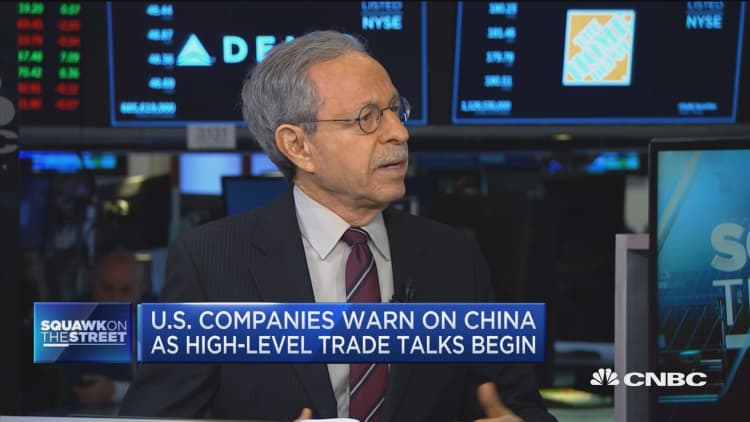
President Donald Trump and Chinese President Xi Jinping need to reach a deal to end their trade war because the U.S. demands are actually beneficial to both economies, said Robert Kuhn, a longtime advisor to the Chinese government and state-owned companies.
"I talk to Chinese economists who tell me privately many of the things the U.S. demands is actually better for China; intellectual property protection, not putting state subsidies for state-owned enterprises. The irony is what the U.S. is forcing China to do in the short term will be good for the U.S., in the long term it's better for China," Kuhn told CNBC on Wednesday.
Kuhn appeared on "Squawk on the Street" as U.S. Trade Representative Robert Lighthizer opened two days of trade talks at the White House with a delegation from China. "Trade deficits started the conversation, but nobody really talks about that seriously," he added.
Kuhn said the major five issues facing negotiators — Trump and Xi agreed on Dec. 1 to a 90-day tariff cease-fire that expires in March — are U.S. demands around opening Chinese markets, intellectual property, cyberspying and cybertheft, forced technology transfers through mandatory joint ventures, and the Chinese government's subsides of state-owned enterprises.
"Some of these, China has made real progress, and needs to be given credit for that," said Kuhn, a columnist for the South China Morning Post and a prolific author whose books include "How China's Leaders Think."
"China wants Shanghai to be a world center of business like London and New York, and maybe the first among equals. And for that to happen, however many years in the future, they must protect intellectual property," he said. "I have visited the Shanghai intellectual property court. There are some very tough judges."
The White House did not respond to a request for comment.


